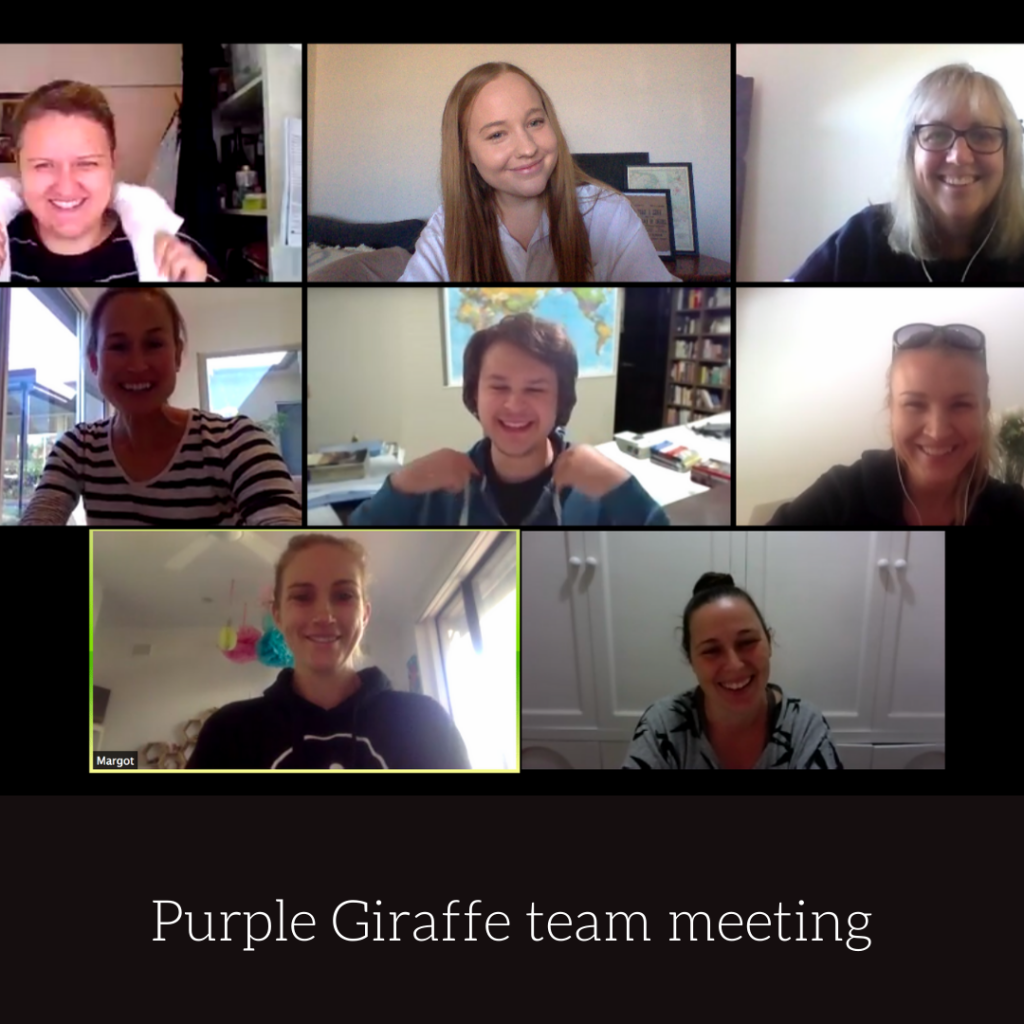I don’t know about you, but I was expecting something different in 2020 to how the year has so far unfolded. As the start of a new decade, and with a neat symmetric sounding moniker, for me and for many others, it was filled with the promise of great things both personally and professionally.
Now less than six months into the year, it has not lived up to my expectations by any stretch of the mark. To date Australians have experienced devastating fires followed by floods. Much of the country is in drought, and currently the Coronavirus pandemic has the world witnessing the most strange and devastating event, both health-wise and economically, that has ever been recorded.
While I feel the phrase is overused, the fact is that when I think about this in terms of my business, and those businesses with whom we work, we are marketing in unprecedented times. We have no rule book, no templates, no case studies and no guidelines to safely follow. We are living, and working, in the moment and setting new precedents.
Everybody is stretched between business, personal and family demands. The uncertainty about what lies ahead plays havoc on immediate decision making. However, what is certain is the way consumer behaviour has shifted. The pandemic has had a profound impact on how audiences engage, consumers shop, and the population consumes and communicates. To achieve success marketers, need to be able to adjust and adapt their strategies at a faster pace than ever before.
The good news is that it’s never too late to evolve your marketing tactics to suit your audiences changing behaviour. In fact, it is likely that over the course of this crisis you may need to do this several times to keep pace.
In this rapidly changing environment the first thing a marketer must do is consider “today” while at the same time keeping in mind how they want their business and brand to be perceived when this crisis is over, and the world starts to return to the new normal.
It’s not only consumer behaviour that is changing during this time. Across the globe our workplaces, office environments, working structures and the way we work together and communicate have also been forced to change. Social distancing and isolation requirements have seen team members working remotely from each other, often with other family members at home in less than ideal situations. Many have taken on additional responsibilities while adapting to their new working environment including the role of teacher, sports coach and family chef overnight.
In this topsy turvy world, successful marketers should consider both internal and external messaging in their marketing mix. On this basis, we have developed several strategic approaches on how you can adapt your marketing message during a crisis both internally and externally.
Internal Marketing
Your team is your business family, take care of them like you take care of your own family. In times of change, transition and uncertainty, making sure your team is well informed and working towards a common goal is more important than ever. Keeping team morale high can be challenging when trying to adapt yourself, but in a time of crisis, it must be a priority.
Here some strategies to adopt:
Honesty is the best policy
Open and honest communications is the glue that holds many businesses together and is even more critical in a time of crisis. With so many uncertainties, your team needs to be able to rely on something solid. Your team will value complete transparency in your communication with them. We understand that you may not have all the answers and that things change quickly but share updates with your team on a more regular frequency than normal during a crisis, even if it’s only a small update.
Method of Communication
With everybody working from home, your method of communication may change. With face to face meetings being prohibited, you may need to adapt to online meetings using platforms like Zoom or Skype. Consider the use of team platforms such as Slack, Google Hangouts or Trello, there are many available so take the time to pick the one that is right for your business and your team.
Share positive messages
With present uncertainty and fear in what the immediate future may hold, it’s important to share the good stuff with positive messaging when possible. Ask you teams to share an uplifting story or highlight something they have done well. As a leader of a team, look for things to celebrate or congratulate your team on. No matter how big or small, share the good frequently.
Keep up the Moral
Not all messaging has to be business-focussed. If possible, it is a great idea to replace the “water cooler” conversations and the office comradery in other ways. Consider opening a closed group on one of the social media platforms, or start a Whats App group, so your team can connect and share stories, pictures, videos or positive affirmations.
If you usually have Friday night drinks or some other social occasion, try to think of ways to do this differently. Consider hosting online Friday night drinks, or grab lunch with the team, online. Pave the way for team members to chat with one another, share pictures of their family, pets or what they are watching on Netflix.
Taking care of your team during a time of crisis is vital to your ongoing brand perception, team loyalty and business outcomes. By implementing a good internal communications plan during this time, you can keep your entire team connected until the crisis is cleared and business can get back to the new normal.
External Marketing
Consumer behaviour has changed and therefore marketing tactics and messages should to be adapted to accommodate these changes.
Whatever you do, do not stop your marketing right now.
Depending on your business offering, it may be appropriate to initially scale back your marketing tactics, and focus on a plan for the future. Or it may be critical that you quickly pivot your business practices, messaging and offering to accommodate how customers will need to access your goods or services now. What ever the case, it is critical that all businesses understand their position in the immediate environment, how this is likely to evolve in the crisis, and then change after it is over. It is important to understand how to communicate with your audience during the crisis, and what can be done to prepare your business offering for the future, so that when the world is opening up again you are able to quickly accelerate out of the curve to meet demand in the new environment.
And while we can’t control the current crisis environment, we can control our response to it through our marketing messaging.
Here are some strategies to consider:
Review your current messaging
Existing brand messaging and creative may not be appropriate for the current environment. It might strike the wrong tone, show the wrong images and generally get consumers offside. Review any of your existing marketing tactics and change them where appropriate.
Adapt your offering
Businesses can change very quickly when they are forced to. In many countries throughout the world, the current crisis has created a new way of living, working and consuming. For many organisations their “business as usual” approach is no longer relevant and they have adapted their offering almost overnight.
It has been encouraging to see many businesses rise to the challenge and transform their entire way of working to not only survive but to continue to successfully service their customers. This fluidity is paramount to success.
Review your customer journey
Your consumers decision making journey may well have changed. Some consumers may hold off on purchases decisions due to uncertainty. Or buying decisions may well have been shortened due to the new perceived urgency of the purchase requirements.
Your marketing should adapt to your new customer journey and needs. Consider how your brand can be top of mind when the consumer is ready to purchase.
Be genuine
Overall, we encourage all businesses to be genuine with their marketing messaging and actions. Don’t try to capitalise on the situation. Genuinely wanting to help is always the best approach. It’s important that your messaging is consistent with your brand values. Don’t be afraid to acknowledge that these are difficult times for everybody. Be open, truthful and genuine with your consumers and they will have a greater connection to your brand.
Audit your content queue
For those businesses who use scheduling tools, be sure to review your pre-scheduled content and make sure it is appropriate to the current times. Consider changing, pausing or pushing out communications that may otherwise damage your brand if the messaging may be perceived as capitalising on the current crisis or is simply no longer appropriate.
Be kind, inspiring and helpful
Some businesses have been negatively affected by this crisis and others have prospered, it all depends on the products or services your business offers. Either way, during these times it is important for all business to be kind, inspiring and helpful within your circle of influence. You can do this by sharing important community content through your digital channels or sharing how your brand can help the greater community. Consider developing content that helps to lift human spirit. People remember brands for their acts of good in a time of crisis, particularly if done genuinely from the heart. So, do your bit, no matter how big or small.
Think of the future
The only thing we know from history is that we will get through this crisis, we just don’t know what it will look like on the other side. Despite this uncertainty, it is important for marketers to plan for the short and longer-term future.
Planning for the short-term future may be considering what will happen with planned events or marketing campaigns. Will they need to be cancelled, postponed, re-developed or adapted with the current environment in mind.
Longer-term marketing decisions may need to consider modified operations or other tactics.
In both instances, it is important to keep your consumers up to date. Showing your customers that your company is thinking about both the present and the future will create confidence in your brand.
What’s next?
Wouldn’t it be nice to have a crystal ball to know what the future holds?
Businesses are all having the rethink the way they operate.
It is difficult to believe that everything will go back to the way it was at the end of 2019. Consumers have changed and therefore your marketing mix and marketing messaging will need to change with it.
One thing is certain, those involved in the marketing of businesses need to work extremely hard right now, and be clever enough to keep their brand and the customer journey a positive experience, for both their customers and their team.







